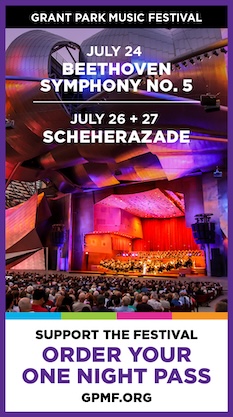With a new title, the Pacifica Quartet delivers searing Shostakovich at the Logan Center

The Pacifica Quartet may now be based in Bloomington, Indiana, but it’s clear that they retain their roots at the University of Chicago, where the popular ensemble drew a capacity audience Sunday afternoon at the Logan Center.
Along with its other residencies at Indiana University’s Jacobs School of Music and the Metropolitan Museum in New York, the quartet has served for a decade as resident performing artist at UC. The Pacifica Quartet’s UC status has now been bolstered with its being named the first Don Michael Randel Ensemble in Residence in honor of the University of Chicago’s president emeritus. The title, supported by the Andrew W. Mellon Foundation which Randel also headed for seven years, will endow a permanent chamber music post at the university, as noted by Randel and other officials in pre-concert remarks.
Sunday’s borsht-and potatoes program of Mozart, Shostakovich and Brahms for the University of Chicago Presents series played to the Pacifica’s considerable strengths and delivered compelling and insightful performances. Still, one wishes the Pacifica’s non-Contempo Chicago programs would show some of the spirit of repertorial adventure that the ensemble was once noted for, exploring more offbeat repertory and neglected American music.
The Pacifica recently released the fourth and final installment in their complete cycle of Shostakovich quartets on the Cedille label, a project represented Sunday with the Russian composer’s Quartet No. 7 in F sharp minor.
The shortest of Shostakovich’s fifteen quartets, the Seventh was written as a memorial for the composer’s first wife Nina Vazar, yet is characteristic in its mix of sardonic tone with an elegiac bleakness. There are moments of humor and irony, as with the swaying, spectral waltz that appears in the finale, but which ultimately give way to tranquility before nothingness.
It’s unlikely that any chamber ensemble currently before the public performs this repertory with the kind of fire, understanding and deep sympathy that the Pacifica brings to Shostakovich after their complete quartet cycles in Chicago and elsewhere. Sunday’s searing performance of the Seventh Quartet showed the Pacifica at their best.
The players were in synch from the first notes, bringing a spare, deadened quality to the jokey throwaway theme of the first movement as well as the ensuing pensive line against hard pizzicatos. The central Lento was especially fine, the somber and brooding expression aided by fine half-tone coloring from violinist Simin Ganatra. All players attacked the opening of the final movement with violent fury, segueing fluently into the desolate unease that concludes the work.
As with his symphonies, Brahms labored long before publishing his first string quartets, yet the Quartet No. 1 in C minor could have come from no other hand, with its blend of restless dynamism and dark lyricism.
The Pacifica members offered a worthy and sympathetic account of the Brahms quartet Sunday, albeit with some fitful yet surprising technical lapses from this usually polished ensemble.
Still unlike their Shostakovich and Beethoven, the Pacifica’s Brahms doesn’t feel entirely lived in as yet. While affectionately rendered, the Pacifica’s take on the Romanze didn’t plumb as deeply into this interior music as it might. And while the outer movements went with bracing energy, the Pacifica’s slender-silver sonority seemed lacking in weight and low-end ballast for this composer’s beefy style.
The afternoon led off with Mozart’s Quartet in F major, K.590. The Pacifica offered an elegant lightly articulated account of this late work, which felt wholly idiomatic. There was some passing roughness in the playful Menuetto but the closing Allegro rounded off the performance in worthy fashion, the players digging into this Austrian hoedown with fine spirit.
Note: Rafal Blechacz who received the Gilmore Artist Award last week makes his Chicago recital debut April 25 at Mandel Hall.
The Goldstein-Peled-Fiterstein Trio will perform music of Beethoven, Liszt, Debussy, Kopytman and Brahms 7:30 p.m. January 31 at Mandel Hall. chicagopresents.uchicago.edu
Posted in Performances
